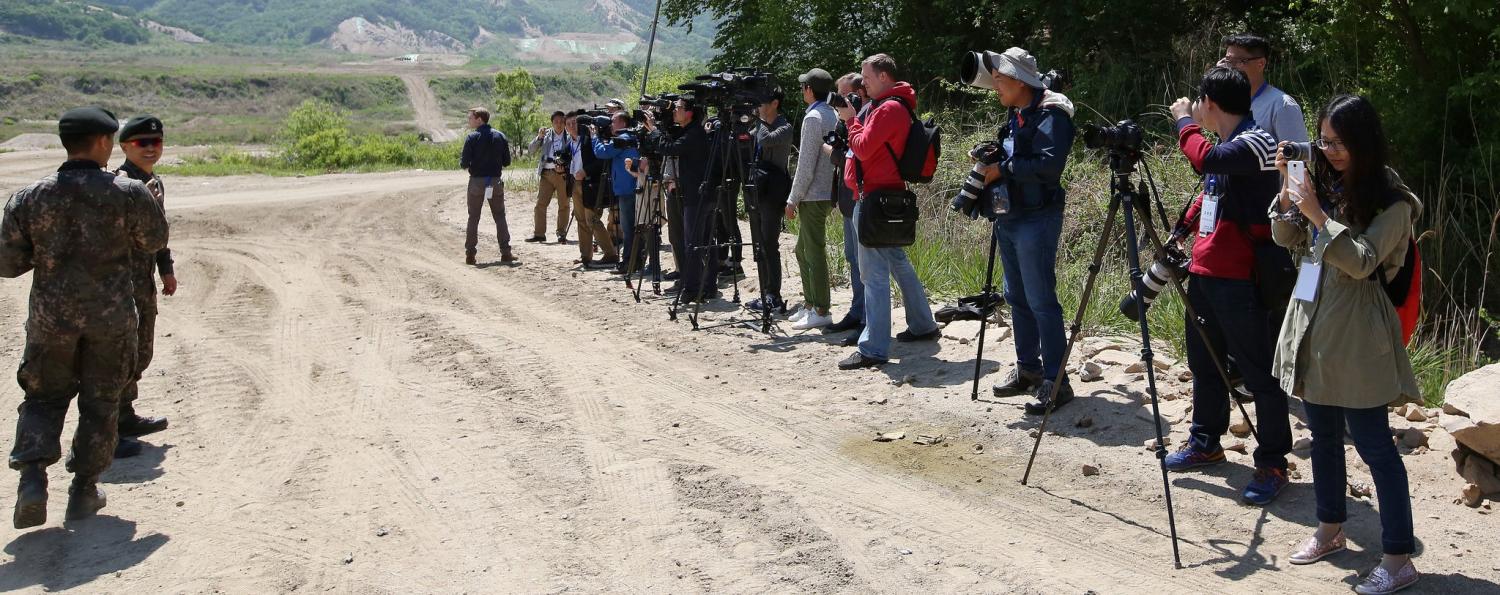I have a confession to make. I’ve spent my working life in opinion journalism: newspaper comment pages, political magazines, think-tank journals, radio broadcasting. Yet I recoil from the increasing tendency of journalists to give their opinions about the events they cover rather than to provide a fair, balanced and detailed account of those news events.
Nowhere is this trend more evident than in international affairs. The media feed us a daily diet of what should be happening in the world rather than what is happening in the world.
At one level, this trend is hardly surprising. Since the onset of the Internet and social media, serious coverage of international affairs has been in steady decline in the Australian media.
The technological upheaval in the industry has dramatically changed the way news is gathered and consumed around the world. As a result, foreign correspondents and their news outlets face tremendous financial pressures and constraints on time to place events in a broader context.
At another level, it is nothing short of outrageous that so many of our media outlets dedicate little serious treatment to the world. There is a plethora of cable channels and web site sites dedicated to international affairs. And yet, with rare exceptions, nightly bulletins on commercial television and radio across the country do not feature serious segments on the big international news of the day.
Even our public broadcaster is not immune to criticism. Although the ABC showcases many outstanding journalists and correspondents - some are candidates in this year’s Lowy Institute Media Award - editorial staff sometimes miss the significance of important global events.
A case study: When Lee Kuan Yew died two and a half years ago, much of the Australian media missed the significance of the story. Here was arguably the most consequential and influential figure of post-war Asia. Yet neither ABC television’s 7.30 nor Lateline - the leading news and current affairs programs on our public broadcaster - featured any segments on Singapore’s founding father. No reports. No debates. Nothing.
All of this is why the Lowy Institute should be commended for raising the profile and prestige of quality journalists who are dedicated to covering international affairs. As a judge of this year’s media award, it has been my great pleasure to review the work of some outstanding local reporters on the global stage.
The distinguished British journalist and historian, Sir Max Hastings, has spent the 50 fifty years covering international affairs. His byline popped up from every trouble spot in the world: Vietnam, Israel, Pakistan, Angola, Rhodesia, Cyprus, Northern Ireland and the Falklands. And he did it before the advent of smart phones, laptops and Twitter.
Writing in Going to the Wars (2000), his memoirs of reporting from 11 wars and 60 countries, Hastings sets out the defining qualities of a sound foreign correspondent or journalist covering the world.
Being a superb natural journalist helps: if you are clever, well read and can write or speak with speed and fluency under pressure, the chances are you’re likely to make an excellent reporter abroad.
It also helps to make profitable contacts among senior players (military, political, local). And a refusal to hunt with the rest of the pack – to not just challenge authority but the prevailing media narrative - is imperative.
Reporting wars is an especially dangerous activity. It is for each correspondent to come to terms with his or her physical and mental limits. But you should not be afraid about ducking bullets. And you need to be an adventurer at heart, the type of journalist who is prepared to take that extra risk to get the scoop.
In a pre-recorded interview for my Radio National program Between the Lines last week, I asked Hastings to assess the current state of the media coverage of world affairs. He said that, in the digital age, there are plenty of ways to gather and spread information, but there is very little knowledge. He attributes this to not just the lack of specialists in the field, but to a failure of journalists to get out, meet ordinary people, and report their circumstances in the proper context.
Few illustrate better the importance of dispassionate, truth-telling international-relations journalism than those selected for this year’s Lowy Institute Media Award shortlist (the winning individual or team will be announced on Saturday night at NSW Parliament House). In my judgment, all on this list have demonstrated tenacity, determination and personal courage: they are all ornaments to the journalism profession in Australia. Max Hastings would agree.
